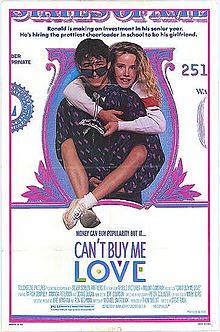Among my friends and co-workers, we continually debate two disjoint topics that are seemingly related. I find it increasingly uncomfortable that these two discussions don't intersect because they are related.
First, we complain and contemplate the frothy technology market --
Are we in a bubble or not?,
paths to exit, and the
dearth of quality engineers and designers. Certainly, these are high quality, "first world" problems. From the outside, I'm sure it sounds like a lot of elitist whining.
On the other hand, we consider the possibility of a global (economic) melt down and decreasing wealth and power in the United States. The
European economy, the
Arab Spring, the
shaky US economy, and
China all seem to broadly contribute to this concern. Is the United States in deep doo-doo? Are we on a long term permanent decline? Most recently, it's been "what are "we going to do to
create jobs?" Unemployment at greater than 9% is a crisis.
From one perspective, job scarcity threatens our country. From another, there aren't enough qualified workers to satisfy the demands of our industry.
What's going on here? It's all most as though these discussions are happening on two different planets.
In general, it seems reasonable that "Job Creation" is a good thing. Having more jobs and more people employ seem to benefit society. And, yet the Information Technology industry has been systematically
destroying jobs in the name of efficiency, productivity, and improving the quality of life for all. The demand for more IT workers to that destroy and industries has never been higher.
Let's peel back the onion an take a look.
Are Web About Job Creation? Or Job Destruction?The computer industry (whether it be hardware, software, Internet) is all about automation, efficiency, and exponential change and improvement. This has gone on for decades. The impact on society is breathe-takingly noticable. Price decreases, improved product quality, frictionless communication, and access to tools and devices that were unimaginable (except for maybe Star Trek fans, Aurthur C. Clarke, and Jules Verne) are the results of the computer revolution.
But, along the way, we have created a long term ecosystem that is destroys jobs as a consequence Insiders use the phrase
industry disruption. We are really all about job
destruction. For all the talk in Washington and in local coffee shops about
job creation and "putting Americans back to work," the technology industry is like Godzilla, destroying jobs and industries in its path. Sure, the tech industry creates jobs. But for every job created, thousands of jobs are made obsolete by the advancement of more technology.
And, this has certainly been a long term trend in my career.

My first job out of college was working for AT&T Bell Laboratories ("The Phone Company") I was a software engineer writing code for the
5ESS, perhaps the largest and most complex distributed software system in the world at the time. More specifically, I built software to automate "call processing" and make the telephone system infrastructure more efficient. As a consequence, tens of thousands, if not hundreds of thousands, jobs went away. Telephone operators, telephone pole climbers, bill processing agents, customer service reps, blue collar workers who build telephone switches, and even other software engineers (because I was also building tools to make software engineering more efficient) all lost their jobs.

I later went to work at
BroadVision. First, we built some of the early infrastructure for ecommerce, transforming Main Street and small businesses. The rise of ecommerce (probably most symbolized by
Amazon) made retailing more efficient, resulting in job losses in the entire supply chain. I then went on to build financial services software putting bank tellers and stock brokers out of business. Next up was travel. We built some of the first online travel systems (.e.g.
American Airlines) so that you could purchase airplane tickets over the Internet. The travel agent industry was never the same.
I then founded
MerchantCircle. While the verdict is still out on it's impact, our goal was to completely transform how small businesses bought advertising. The effect was going to put the Yellow Pages out of business, eliminating "feet on the street" sales forces that sold such advertising. Again, will tens of thousands of sales people be out of work?
And now, at
Charity Blossom, we're out to transform the charitable giving industry by making donations easy, efficient, and fun. Along the way, how fund raising is currently done is going to change dramatically. We don't know precisely how this is going to play out, but large events, fund raiser activities, and internal operations for those on the "development" side of nonprofits are going to change. Hopefully, for the better.
Is this Good?
On the surface and in a fairly deep examination, it seems that the progress that we've made in the Information Technology industry is good. We operate more efficiently, we have access to more stuff, and products and services are cheaper.
Looking back, we've moved from an agrarian culture to an industrial culture, incorporated more process efficiencies (e.g. the factory assembly line), decreased the number of hours, and days we work. Much like technology's impact, processes got more efficient and we believed that life would get better as a result. And it probably has. More free time (i.e. less time working) promised to lead to a more fulfilled, more satisfying, and happier lives. We'd have more time to "enjoy life."
However, as technology removes (rather "destroys") jobs and entire industries, what will happen to those that were (happily) employed in those roles? Are we creating new jobs or are jobs just going away? And, if there are new but different jobs, can we re-train a work force to do something completely new? In other words, can we "teach old dogs new tricks?" Or are we fooling ourselves?
As politicians get on the "job creation" bandwagon (who could argue against this?), we are left with more sound bites than substantive solutions to our "job problem." I'm not sure what the solution is. Technology marches on. I'm not sure where this ultimately leads. A world where there are far less people working and far more machines working is coming. Utopian or dystopian, I know not.
That point in time is near. I can hardly wait. (That's a topic for a new blog post in the future.) In the mean time, as technologist continue to make the world a better place, a few jobs are created, millions more are destroyed, and entire industries will go away, all most overnight.

 In short, can you really convince/manipulate the head cheerleader or captain of the football team to (pretend to) befriend you? Which brings me to my meta-point; Everything I learned about getting along with others, I learned in junior high school. And, maybe it all works out in the end.
In short, can you really convince/manipulate the head cheerleader or captain of the football team to (pretend to) befriend you? Which brings me to my meta-point; Everything I learned about getting along with others, I learned in junior high school. And, maybe it all works out in the end. The
The 


